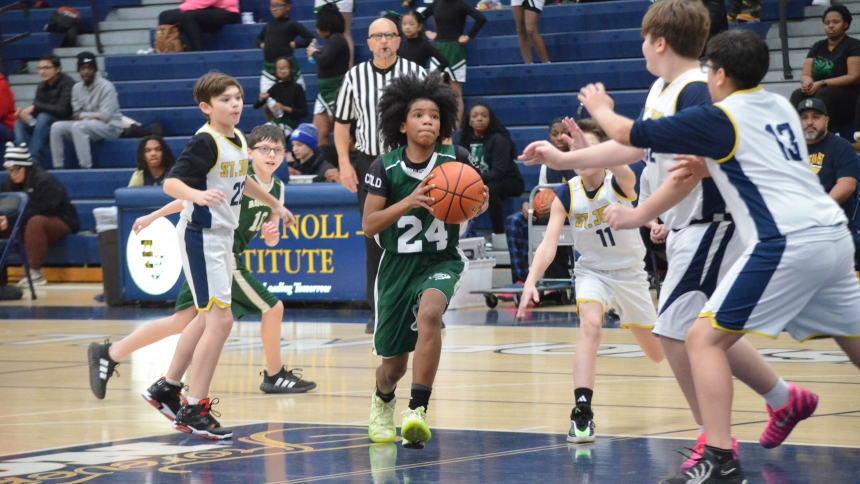
As published in the Northwest Indiana Catholic on March 5, 2017
You could lock me up in a library or bookstore for months and I would be perfectly content, as long as I could celebrate Mass and have a modicum of physical nourishment. I have always loved to read—biographies, history, spirituality, politics, philosophy, current events, classic and historic fiction and theology especially capture my interest. People always wonder when I have the time to read - I pick up a book every night before I go to sleep and try to get at least 20 minutes in before I drift off.
So, the other day, I was looking around my rooms at the cathedral rectory and thanking God for books (I do purchase and use e-books, but I still like holding a physical book in my hands and turning pages). I was struck by the astounding fact that countless people throughout history have dedicated a significant portion of their lives to writing down their wisdom, research, knowledge and belief, so that we could all grow and benefit.
When I see books, I see people - authors, mentors, professors and friends who have taught, formed, inspired and befriended me, many of whom I have never met and perhaps lived hundreds of years ago. I find it difficult to give books away because they all feel like friends who have helped me along my journey of wisdom.
We all probably have a few books that have deeply impacted us over the course of years - authors who have helped us understand God, ourselves, other people or even our life’s vocation and fundamental purpose.
“The Seven Storey Mountain,” the spiritual autobiography of Thomas Merton, who converted to Catholicism in the 1930’s and subsequently entered a Trappist monastery, has always captured my imagination. Although Merton later dismissed the book as too simplistic, it movingly details his progression towards God and faith, capturing along the way the intellectual and sociological ferment of America in the early twentieth century.
Another such book is “The Introduction to the Devout Life” by Saint Francis de Sales, which articulates a sound, balanced and beautiful approach to Catholic spirituality. “Abandonment to Divine Providence,” by Jean Pierre Caussade, teaches us to live in the present moment and to see the will of God in all circumstances of life.
“The Three Musketeers” by Alexandre Dumas is a fun and adventurous read, spinning an engaging tale of chivalry, intrigue, friendship and loyalty. Rereading my favorite classics, which also include “Treasure Island,” “The Black Arrow” and “Kidnapped” by Robert Louis Stevenson, “Oliver Twist,” “David Copperfield” and “A Tale of Two Cities” by Charles Dickens, “The House of the Seven Gables” and “The Scarlet Letter” by Nathaniel Hawthorne and “The Last of the Mohicans” and “The Deerslayer” by James Fennimore Cooper, takes me back to the simple innocence of childhood and the exotic epochs of history, while, in some cases, offering incisive moral and social commentary.
I am not sure if young people still read these classics, but they formed me in profound ways.
Historical figures have always fascinated me - those called by God to accomplish an important task, advance a cause or embrace suffering, danger and even death for the sake of a belief or an ideal. Francis of Assisi, Joan of Arc, Thomas Jefferson, Edith Stein, Martin Luther King, Dorothy Day, Maximilian Kolbe, Therese of Lisieux, Winston Churchill, Francis de Sales, Teresa of Avila, John of the Cross, Michelangelo, Catherine of Siena, Helen Keller, Robert Kennedy, Rosa Parks, Pope John Paul II, Mozart, Mother Teresa, Abraham Lincoln and James Madison are a few of the many colorful characters who stir my soul.
Reading their stories reminds me that every human life is a unique drama of grace and sin, opportunity and limitation, gifts most often used for good and the triumph of the spirit over daunting forces. Our individual narratives all proclaim, often in mysterious and inscrutable ways, the great love story of God’s saving mercy and kindness.
Some of the current books I have recently read include: “The Great American Debate,” by Fergus Bordewich, which tells of the national struggle in the United States over the slavery issue in the 1850’s; “The Divine Comedy” by Dante, the classic journey through hell, purgatory and heaven narrated by the first modern Italian author; “Killing the Rising Sun,” Bill O’Reilly’s narrative regarding the end of World War II in the Pacific; and Matthew Kelly’s new book “Resisting Happiness.” I’ve also read two historical novels: “All the Light We Cannot See,” by Anthony Doerr which narrates the story of a blind girl in France during the Nazi occupation; “Leaving Berlin,” detailing the chaos of Germany at the end of World War II; a daunting tome of Pope Benedict’s writings on the liturgy; a book which contemporizes devotion to the Sacred Heart; and a heart-breaking true story of a group of men with special needs who worked in a turkey processing plant for years with little pay, terrible living conditions and woeful neglect entitled, “The Boys in the Bunkhouse,” by Dan Barry.
Reading and study are spiritual activities because they impart knowledge, wisdom and understanding. If Truth is One and Truth is God, then every “true” book communicates something divine to us, whether that be a poem, a novel, a historical narrative, a political commentary or a sociological analysis.
Many people may find it difficult to take time to read, but the effort is always worth it. I find books so much more substantial and nourishing than television. Get hooked on reading—the world opens up in new ways and you will never be bored!
+ Donald J. Hying


